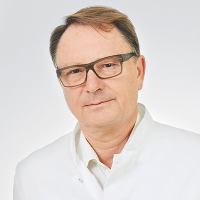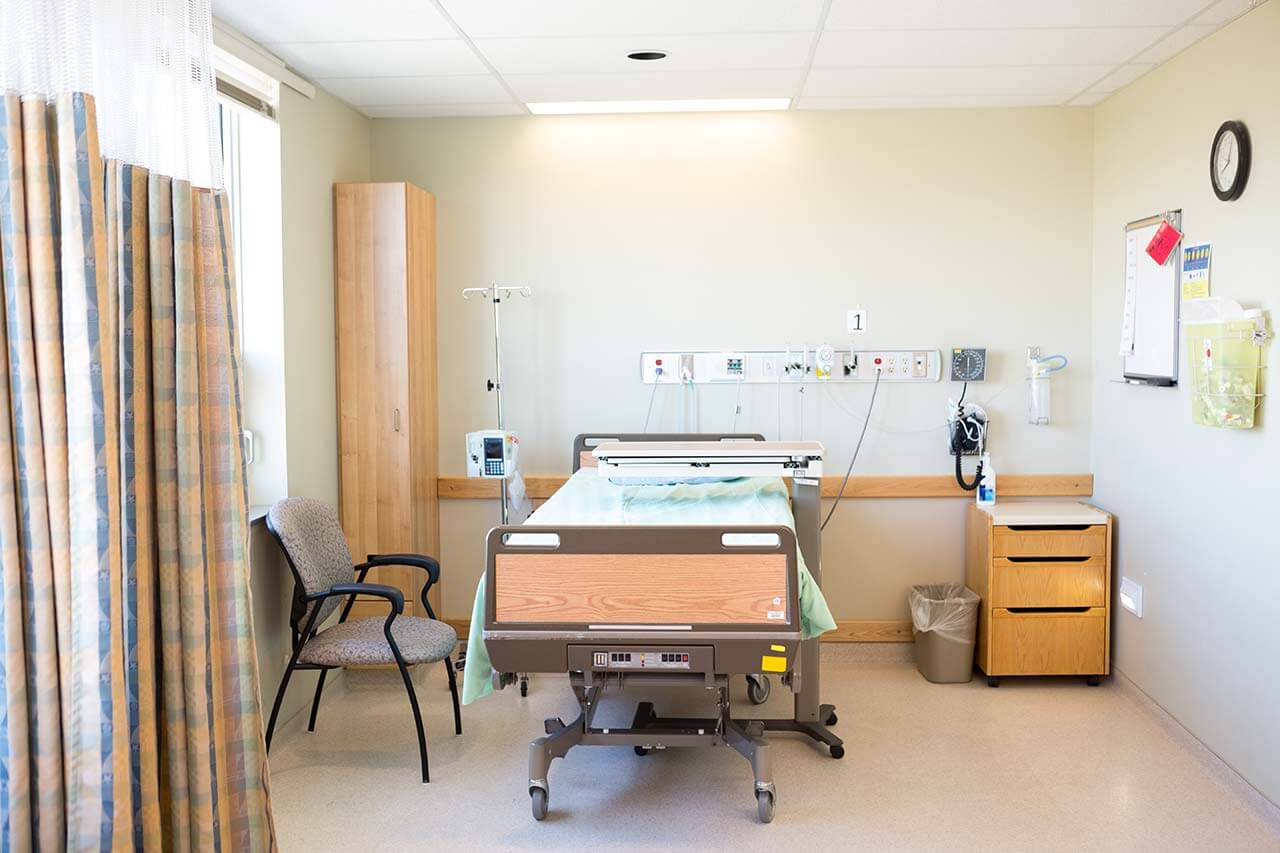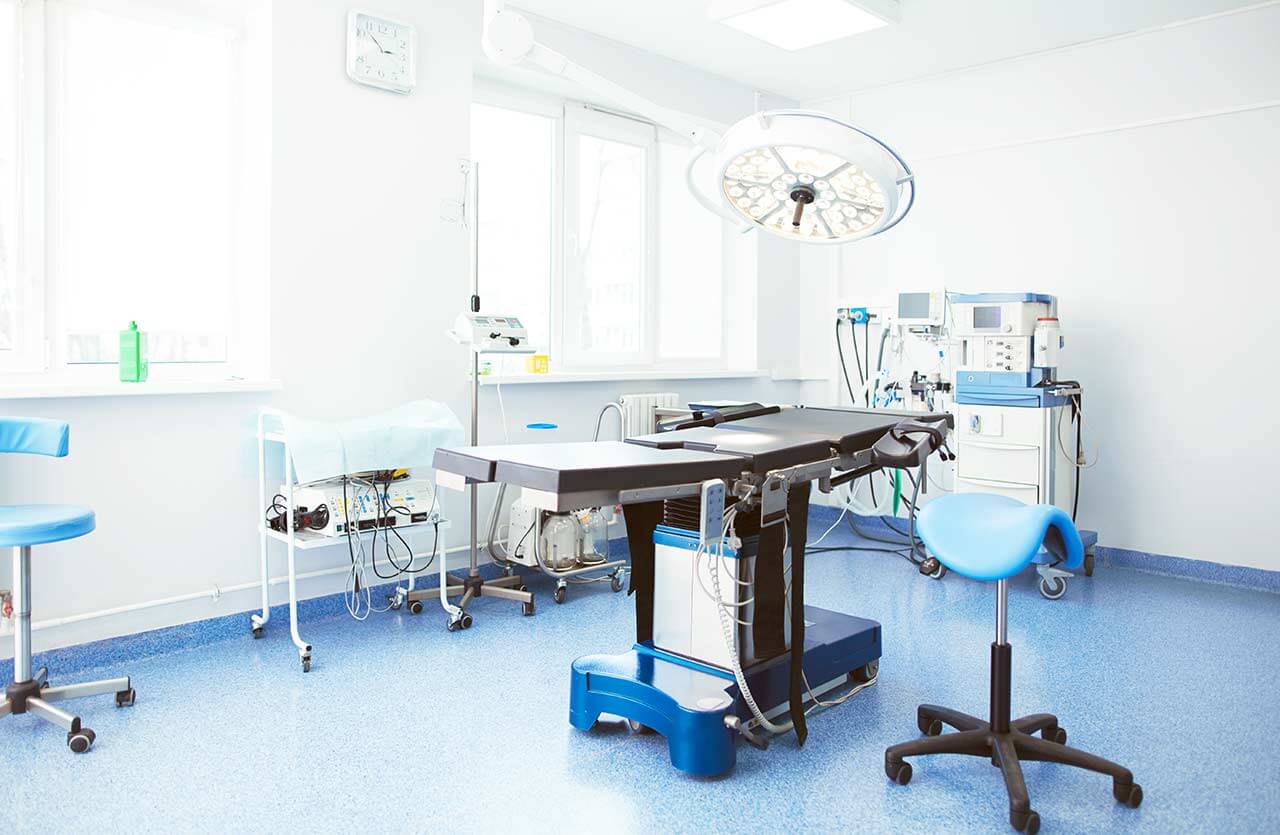
The program includes:
- Initial presentation in the clinic
- case history collection
- general clinical examination
- laboratory tests:
- complete blood count
- general urine analysis
- biochemical analysis of blood
- indicators of inflammation
- indicators blood coagulation
- X-Ray/MRI scanners
- preoperative care
- minimally invasive surgery of achilles tendon
- symptomatic treatment
- control examinations
- physiotherapeutic procedures
- orthopedic appliances
- the cost of essential medicines and materials
- nursing services
- full hospital accommodation
- explanation of future recommendations
Required documents
- Medical records
- MRI scan (if available)
Service
You may also book:
 Price from:
Price from:
About the department
The Department of Foot Surgery at the Schlosspark Hospital Berlin offers counseling, diagnostics, and conservative and surgical treatment of the full range of foot diseases and deformities. The department's team of surgeons specializes in repairing foot deformities, including hallux valgus, hallux rigidus, hammer toes, exostoses, and heel spurs. The department also has successful experience in the treatment of Morton's neuroma. All surgical interventions on the foot and ankle joints are performed in well-equipped operating rooms in strict compliance with international surgical standards. The department's specialists prefer minimally invasive and microsurgical techniques. Comprehensive consultations and X-ray diagnosis are carried out prior to treatment in order to determine the optimal therapeutic approach. The medical team aims to provide patients with high-quality medical care and improve their quality of life, as foot pain often restricts movement function.
The department is headed by Dr. med. Cornelius Salich. The doctor's qualifications and successful clinical practice allowed the specialist to be certified as a medical expert by the German Society for Foot and Ankle Surgery (GFFC). Dr. med. Cornelius Salich has over 30 years of successful clinical practice in foot surgery. The specialist is highly respected in the professional medical community and ranks among the top German doctors in the field of his competence, according to patient reviews.
Hallux valgus is one of the most common foot deformities. This pathology causes outward deviations from the first toe, which results in metatarsophalangeal joint arthritis and deformity of the remaining toes. The main manifestation of hallux valgus is foot and ankle pain. As the deformity progresses, problems such as callosity and ingrown toenails may occur. Patients may have complexes about the unattractive appearance of their feet and have difficulties finding suitable footwear. When seeking medical attention for the early stages of hallux valgus, the patient has a chance to avoid surgery and get rid of the deformity with the help of conservative treatment. As a rule, a conservative treatment regimen includes footwear selection, wearing orthopedic insoles, using corrective bandages, massage, therapeutic exercises, and physiotherapy procedures. In the event of the ineffectiveness of conservative therapy and the persistence of severe pain, the department's doctors recommend the patient undergo a reconstructive surgical procedure called an osteotomy. Thanks to the use of minimally invasive surgical techniques, the patient's recovery in the postoperative period is rapid. As early as 3 weeks after the intervention, the patient returns to their usual way of life.
An important area of work for the department's surgeons is also repairing hammer toes. Hammer toe deformity primarily affects the second, third, and fourth toes, or one of them. In the case of this deformity, the toes take a bent position resembling a hammer. In most cases, the deformity is a consequence of complex forms of flatfoot. Patients with hammer toes experience pain that intensifies as the condition progresses, making it difficult to walk. In addition, the deformity impairs the aesthetics of the foot, so patients cannot wear open or fashionable shoes. The department's doctors often resort to surgical repair of hammer toes because conservative therapy can only relieve pain temporarily while the deformity continues to progress, making surgery inevitable in the future. The optimal type of surgery is determined based on the particular clinical case. Doctors may perform reconstructive plastic surgery or an osteotomy. All such operations are performed in the department using minimally invasive techniques, so the risk of complications is negligible, and the patient can get out of bed on the day of the surgical intervention.
The department's doctors have unique professional skills in the treatment of Morton's neuroma, which is a benign foot nerve sheath thickening caused by fibrous tissue overgrowth. The first-line treatment for this condition is conservative therapy, which involves wearing comfortable and spacious low-heeled or specialized orthopedic shoes and using orthopedic insoles and metatarsal pads. Physiotherapy is an integral part of conservative treatment. In addition, the patient is treated with medications to alleviate pain and suppress inflammation. If conservative therapy does not give the desired result, the patient is indicated for surgery. The main surgical techniques for treating Morton's neuroma are neoplasm resection or dissection of the intermetatarsal ligament. The latter surgical procedure is considered more sparing. Both operations are performed using minimally invasive techniques on an outpatient basis.
The department's key clinical focuses include:
- Surgical repair for hallux valgus
- Surgical repair for hallux rigidus
- Surgical repair for hammer toes
- Surgical repair for exostoses
- Surgical repair for Morton's neuroma
- Surgical repair for heel spurs
- Surgical repair for other foot diseases and deformities
Curriculum vitae
Higher Education and Professional Career
- 1977 - 1983 Medical studies at the Medical Academy in Katowice.
- 1980 - 1989 Assistant and Visiting Lecturer, Medical Academy in Katowice.
- 1985 - 1990 Assistant Physician, Department of General and Vascular Surgery, hospital at the Medical Academy in Katowice.
- 1990 Board certification in Surgery, Central Institute for Continuing Education and Training in Katowice.
- 1991 Thesis defense.
- 1991 Assistant Physician, Department of Surgery, Salzhausen Hospital.
- 1992 Assistant Physician, Department of Surgery, St. Elizabeth Hospital Berlin.
- 1992 Senior Physician, Department of Surgery, St. Elizabeth Hospital Berlin.
- 2001 Specialization in Abdominal Surgery.
- 2001 Senior Physician and Permanent Deputy Head Physician, Department of Surgery, St. Elizabeth Hospital Berlin.
- 2005 Managing Senior Physician, Department of Surgery, Schlosspark Hospital Berlin.
- 2013 Physician, Department of Foot Surgery, Schlosspark Hospital Berlin.
- Since 2014 Head Physician, Department of Foot Surgery, Schlosspark Hospital Berlin.
Additional Qualifications
- Additional qualification in Emergency Care.
- Certified Surgeon of the German Society for Foot and Ankle Surgery (GFFC).
Photo of the doctor: (c) Schlosspark-Klinik GmbH
About hospital
The Schlosspark Hospital Berlin began its work in 1970 and, during this time, has gained an excellent reputation not only in Germany but also in the international medical arena. The Schlosspark Hospital Berlin is an academic hospital of the Charite University Hospital Berlin, which is one of the best medical centers in Europe and throughout the world. The successful clinical practice of the medical facility is based on an advanced medical and technical base, access to the very latest and most effective treatment methods, and the exceptional competence and experience of medical personnel. The hospital is located in the picturesque Charlottenburg Park, away from the hustle and bustle of the city, which contributes to the peace of mind of patients.
The hospital's bed fund includes 340 beds. Structurally, the hospital consists of 12 specialized departments with narrowly focused centers integrated into them, which are responsible for the treatment of a particular group of diseases. More than 14,000 patients are treated annually at the hospital. One of the priorities of the medical facility is emergency medical care. With an annual number of more than 10,000 surgical interventions, including operations of high complexity, the department is particularly interested in surgical treatment.
The hospital's medical team consists of more than 900 employees. The departments at the hospital are headed by professors who are well-known in the medical community and have impressive clinical experience and outstanding professional achievements. In the course of diagnostics and treatment, an individual approach is used for each patient, and his needs and wishes are also taken into account. The hospital pays due attention to patient care during the therapeutic process. Despite state-of-the-art medical equipment and the automation of many processes, a humane and respectful attitude towards the patient is the first priority for the doctors at the hospital. The specialists are always open to dialogue and do their best to achieve the best treatment outcomes.
Photo: (с) depositphotos
Accommodation in hospital
Patients rooms
The patients of the Schlosspark Hospital Berlin live in comfortable rooms with light colors. Each patient room has an ensuite bathroom with a shower and a toilet. The standard patient room includes a comfortable automatically adjustable bed, a bedside cabinet with a pull-out table, a wardrobe, a table and chairs for receiving visitors, a telephone, and a TV. Wi-Fi is available on the territory of the hospital. The hospital also offers enhanced-comfort rooms with a more exquisite design.
Meals and Menus
The patient and their accompanying person are offered three meals a day: breakfast, lunch, and dinner. A new menu is prepared for patients each week. Only high-quality and fresh products are used for cooking meals. The menu includes dietary and vegetarian dishes. The patient will be offered an individual menu if necessary.
There is a cozy cafe on the ground floor of the hospital that serves full breakfasts, a wide range of hot and cold drinks, delicious desserts, and snacks.
Further details
Standard rooms include:
Accompanying person
The accompanying person may stay with you in the patient room or at the hotel of your choice during the inpatient program.
Hotel
You may stay at the hotel of your choice during the outpatient program. Our manager will help you choose the best option.


